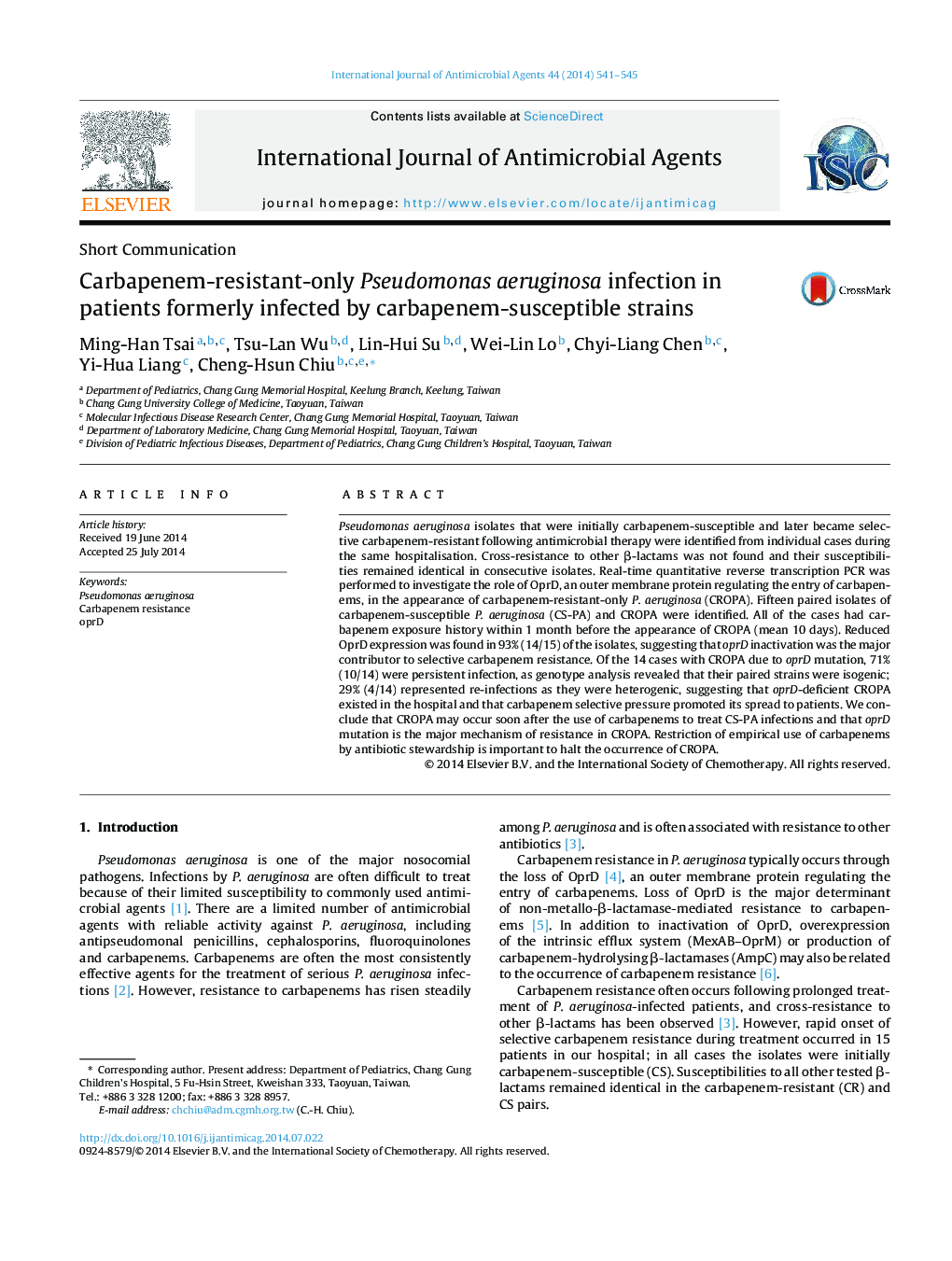| کد مقاله | کد نشریه | سال انتشار | مقاله انگلیسی | نسخه تمام متن |
|---|---|---|---|---|
| 3358772 | 1591774 | 2014 | 5 صفحه PDF | دانلود رایگان |
• Selective carbapenem resistance in P. aeruginosa occurs soon after carbapenem therapy.
• OprD inactivation is the predominant cause of selective carbapenem resistance.
• Carbapenem-resistant only P. aeruginosa clonal spread may exist in hospital settings.
Pseudomonas aeruginosa isolates that were initially carbapenem-susceptible and later became selective carbapenem-resistant following antimicrobial therapy were identified from individual cases during the same hospitalisation. Cross-resistance to other β-lactams was not found and their susceptibilities remained identical in consecutive isolates. Real-time quantitative reverse transcription PCR was performed to investigate the role of OprD, an outer membrane protein regulating the entry of carbapenems, in the appearance of carbapenem-resistant-only P. aeruginosa (CROPA). Fifteen paired isolates of carbapenem-susceptible P. aeruginosa (CS-PA) and CROPA were identified. All of the cases had carbapenem exposure history within 1 month before the appearance of CROPA (mean 10 days). Reduced OprD expression was found in 93% (14/15) of the isolates, suggesting that oprD inactivation was the major contributor to selective carbapenem resistance. Of the 14 cases with CROPA due to oprD mutation, 71% (10/14) were persistent infection, as genotype analysis revealed that their paired strains were isogenic; 29% (4/14) represented re-infections as they were heterogenic, suggesting that oprD-deficient CROPA existed in the hospital and that carbapenem selective pressure promoted its spread to patients. We conclude that CROPA may occur soon after the use of carbapenems to treat CS-PA infections and that oprD mutation is the major mechanism of resistance in CROPA. Restriction of empirical use of carbapenems by antibiotic stewardship is important to halt the occurrence of CROPA.
Journal: International Journal of Antimicrobial Agents - Volume 44, Issue 6, December 2014, Pages 541–545
